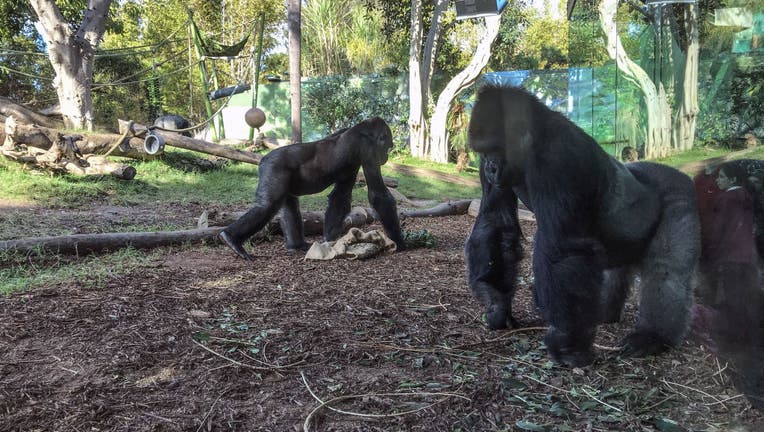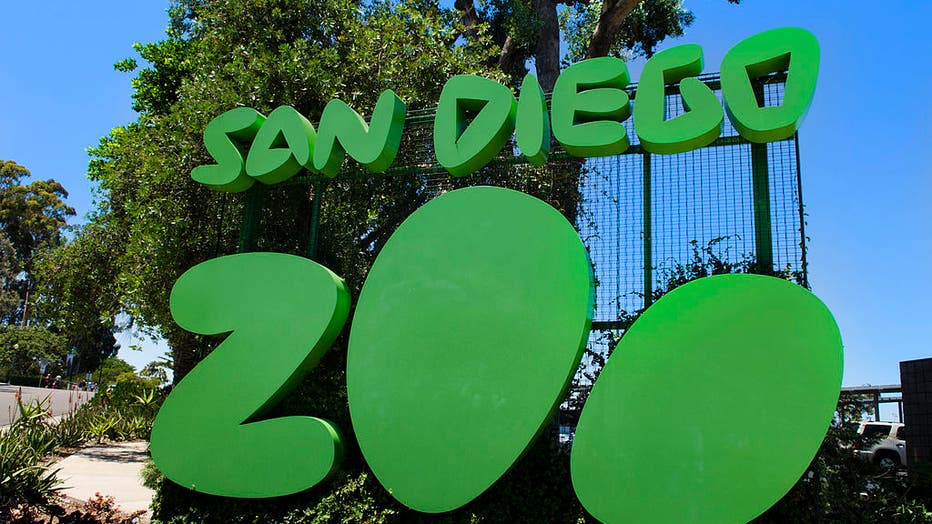Several gorillas at San Diego Zoo test positive for COVID-19: officials

(Getty Images)
SAN DIEGO - An official at the San Diego Zoo Safari Park on Monday confirmed several gorillas have tested positive for COVID-19.
During California's coronavirus update on Monday afternoon, California Governor Gavin Newsom announced two gorillas at the zoo tested positive for COVID-19 and a third gorilla was displaying coronavirus symptoms.
It is believed to be the first known cases among such primates in the United States and possibly the world.
Gov. Newsom added that health officials are working to confirm the source of infection and strain.
"It’s just an area that’s long been of concern. Human to animal transmission but our beloved gorillas, obviously, we’re concerned about and San Diego Zoo, best of the best, they have tested now two positive, but three are symptomatic and we are likely to see more information about this in real-time in the next hours, not just days," he said.
Newsom said he shared the status of the gorillas with his four kids earlier in the day "because of their love for animals."
Currently, all zoos remain closed in Southern California as the area remains under an extended regional stay-at-home order with an unprecedented surge that continues to impact the Golden State. The order initially went into effect on Dec. 6.
Moments after Newsom's coronavirus update, The Associated Press reported several gorillas at the zoo tested positive for the virus.
The park’s executive director, Lisa Peterson, told The Associated Press that eight gorillas that live together at the park are believed to have the virus and several have been coughing.

(Getty Images)
It appears the infection came from a member of the park’s wildlife care team who also tested positive for the virus but has been asymptomatic and wore a mask at all times around the gorillas.
Veterinarians are closely monitoring the gorillas and they will remain in their habitat at the park, north of San Diego, Peterson said. For now, they are being given vitamins, fluid and food but no specific treatment for the virus.
"Aside from some congestion and coughing, the gorillas are doing well," Peterson said.
While other wildlife has contracted the coronavirus from minks to tigers, this is the first known instance of transmission to great apes and it is unknown if they will have any serious reaction.
Wildlife experts have expressed concern about the coronavirus infecting gorillas, an endangered species that share 98.4 percent of their DNA with humans and are inherently social animals.
The gorillas infected at the San Diego safari park are western lowland gorillas, whose population has declined by more than 60% over the last two decades because of poaching and disease, according to the World Wildlife Fund.
The safari park tested the troop of gorillas after two apes began coughing Jan. 6. The test results were confirmed by the U.S Department of Agriculture National Veterinary Services Laboratories.
Get your top stories delivered daily! Sign up for FOX 11’s Fast 5 newsletter. And, get breaking news alerts in the FOX 11 News app. Download for iOS or Android.
Zoo officials are talking to experts who have been treating the coronavirus in humans in case the animals’ develop more severe symptoms. They will remain together since separating them could be harmful to the gorillas that live in tight-knit groups.
"This is wildlife, and they have their own resiliency and can heal differently than we do," Peterson said.
The safari park on Monday added new precautionary measures for its staff, including requiring face shields and eye goggles when working in contact with the animals.
FOX 11's Kelli Johnson contributed to this report.

